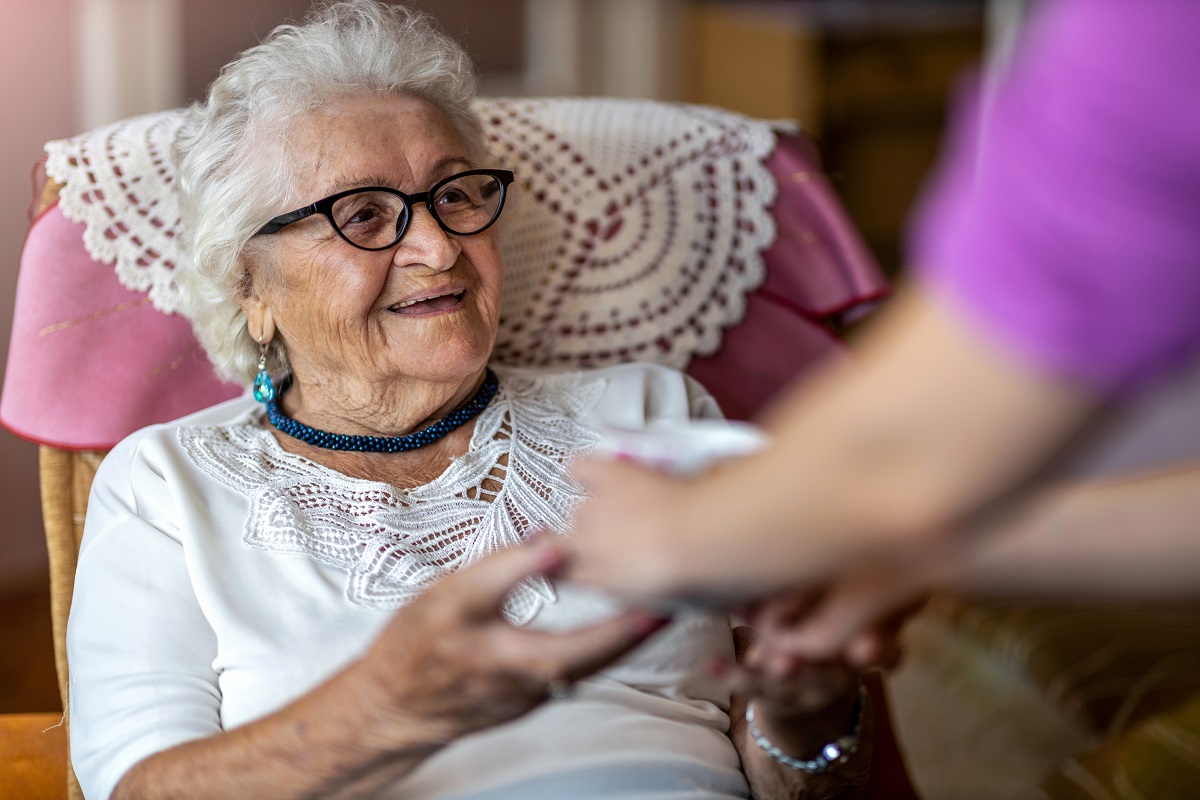British summers are notoriously unreliable, but if hot weather does occur, here’s how to keep a loved one with dementia healthy and safe
While many people welcome the arrival of a heatwave as an excuse to roll up trousers, slap on some suncream and make like we’re living in the Med, for the elderly, and particularly those with dementia, it can throw up a range of challenges.
It’s why it’s so important to be mindful of a loved one with dementia if temperatures rise this summer, particularly if they live on their own and might be isolated.
In fact, Megan Cruise, an advisor from the Alzheimer’s Society, explains why people with dementia can be in danger:
‘A heatwave can lead to a vicious cycle. People with dementia may forget to drink enough fluids and wear suitable clothing. Dehydration and high body temperatures can lead to greater confusion.
‘As temperatures rise, we are urging relatives, carers and others to check in on people with dementia to make sure they are OK. Stay hydrated by drinking plenty of water, eat regularly to replace salts, dress in cool, light clothes and stay out of the heat.’
Follow these key tips:
Stay out of the midday heat. The hottest time is between 11am to 3pm so encourage people to come inside or ensure they’re sitting beneath the shade.
Set reminders to have a drink. Try using a talking reminder clock, put up signs around the house or set alarms on digital clocks.
Place jugs of water and cups in all the main rooms of the house. If they see the jug it will hopefully remind them to drink. If not, leave a message next to it saying ‘Take a drink of water.’
Dilute water with squash or slices of fruit if they don’t like the taste of plain water
Serve up cooling food such as ice-cream, chopped melon, or fruit smoothies. Think about whether the person with dementia has any issues with chewing or swallowing when serving up these foods.
Limit drinks with caffeine as they can increase dehydration. Plus, too much caffeine can disturb sleep (which isn’t ideal if someone with dementia already sleeps less than before).
Take cool baths or showers or simply place a wash cloth and some cold water near their seat so they can dab themselves.
Invest in an electric fan. They can be bought quite cheaply (you can even get mini fans to fit into handbags) and are an easy way to stay cool.
Carry a water bottle when travelling particularly if you’re going on a long journey.
Try a cooling pillow mat like the Original Chillow Pillow® which helps reduce body temperature to a more comfortable level for anyone struggling to sleep, making it easier to drift off.
Keep curtains and blinds shut to stop sunshine increasing the temperature of rooms.
Ensure clothing is light and loose as this will keep the person with dementia cool. Plus, if it’s relatively loose (and even adapted for those with less mobility) it will be easier for them to remove or change if needed.
Signs of heat exhaustion and dehydration
If someone with dementia becomes overheated, it means their body is unable to cool themselves quickly enough. Symptoms of heat exhaustion include muscle cramps, weakness, dizziness, headaches, nausea and vomiting. If you spot any of these symptoms, take them straight to hospital.
They may also become dehydrated, which in itself can cause symptoms of confusion which many be assumed to be dementia. If a loved one has suddenly taken a turn for the worse, it’s definitely worth thinking above whether they might be dehydrated.
SHARE
Explore more




